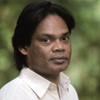Justice, security and long-term stability have been casualties in Kashmir whenever the Abdullah family has ruled
Afzal Guru’s execution has alienated the Kashmiri people far more than any other event in at least a decade. It has shaken the faith of people in India’s systems of justice, legal and political. It has hugely increased the feeling there that the centre does not want to integrate the people of Kashmir into India, that it only wants the land of Kashmir. An extremely tight curfew was imposed immediately after the execution. In many areas, Doordarshan was the only news channel available. Soon after, internet services too were stopped. However, Kashmiris vented anguish over the telephone.
Also read: What Congress wants from flash execution of Kasab and Afzal
In the first few hours after the execution, mainly four kinds of points were being made. One kind focused on the fact that there was no strong evidence against Guru. Even the supreme court had upheld the death sentence on the ground that someone must pay a price for the attack on parliament rather than on the strength of evidence. The execution was therefore seen as a clear miscarriage of justice. The second kind of point being made was that no one has been executed for such crimes as the Delhi anti-Sikh riots or the assassination of Rajiv Gandhi. Nor has anybody been executed for the Gujarat pogroms against Muslims.
A third set of points was emotional. Many Kashmiris spoke of Guru’s little children, his wife, and other members of his family. People said that Guru’s last wish to meet his family was not granted, that his family was informed by ‘speed post’, and that they were not given his body. Fourth, some Kashmiris took the view that the decision to carry out this execution was motivated by electoral calculations. Ergo, many said that stigmatising Kashmiris or Muslims by and large, had become politically convenient for India’s rulers. So, the argument ran, there is no justice or long-term security for Muslims in India.
In fact, closer analysis might show that justice, security and long-term stability have been casualties in Kashmir whenever the Abdullah family has ruled. Their National Conference came to power in the 2008 elections after it won all the seats in the last round of elections – in Srinagar city. There was a large-scale boycott in many parts of the city, and it appears that there was some manipulation of the security and election processes on that last day of polling. In fact, some Kashmiris believe that, if elections had been conducted differently, union minister for renewable energy Farooq Abdullah may not have won one, or perhaps either, of the seats from which he was declared elected to the assembly in 2008. His party has clearly lost support among the people since 2008 and a boycott would surely suit it even more next time round. In this context, it is perhaps noteworthy that Farooq Abdullah made public statements backing Guru’s execution, although he ought to have known better than most how strongly Kashmiri sentiments would be affected.
Now that he has been executed, Guru has become an icon of injustice. His memory, and that of the violence which might now follow, bode ill for the long-term emotional integration of Kashmiris. Even those Kashmiris who have in the past stood for Kashmir remaining a part of India are feeling deeply disillusioned and frustrated after Guru’s execution. Unfortunately, such Kashmiris – who want to live lives of dignity as equal Indian citizens (a large number of them being women and the less economically well-off) generally do not dare to speak. So, they are most often ignored. In the hours after the execution, many of them were feeling depressed, dejected, betrayed. More than one was close to tears, and said they had not been able to eat since morning. Even such pro-India Kashmiris could become alienated as a result of this execution.
As for the rest, the intense public anger in Kashmir could turn violent. There were early reports of firing, resulting in serious injuries, in the areas of Sopore and Baramulla. Furious stone-pelting demonstrations had been sparked in the summer of 2010 by a series of incidents in which the forces of the state were perceived to have murdered innocent citizens. These included the murder at Machil of three unemployed youths, who were described as militants, the execution of Tufail Mattoo in downtown Srinagar (an eyewitness testified that the police shot a tear gas shell at his head from close range while he was lying on the ground), and the killing of the teenaged Wamiq Farooq in an enclave across the Dal Lake from Srinagar. Guru's execution might spark similar, uncontrollable rage in Kashmir.
If the sporadic reports and ground-level reports that fresh militants have crossed the Line of Control in the past couple of years are true, it could dovetail with a new round of militancy – the one that began in 1988 having more or less wound up in 2006. There have also been disturbing reports since 2008 that boys have begun to disappear from their homes for training. If they find arms and training, the result of all this could be disastrous.
This article was written a few hours after Afzal Guru’s execution.

